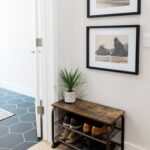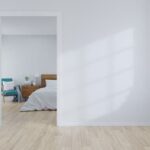How do I learn to decorate my home? Decorating your living space is not just about making it look appealing, but also about creating a comfortable and inviting environment for yourself and your guests.
In this article, we will explore the various aspects of home decor, from understanding your personal style to budget-friendly tips and DIY projects. Whether you’re a novice or just looking for new inspiration, you’ll find valuable insights to help you elevate the look and feel of your home.
Understanding your style is the foundation of successful home decor. By identifying your decor personality, you can create a space that truly reflects who you are. We will delve into the basics of colors, textures, and patterns to help you make informed decisions when decorating your home. And if budget constraints are holding you back, fear not. We have got you covered with practical tips on how to decorate without breaking the bank.
Embarking on DIY projects and seeking inspiration from various sources like Pinterest, Instagram, and home design magazines can also elevate your home decor game. Lastly, for those in need of professional expertise, we’ll discuss the benefits of hiring an interior designer or decorator. No matter where you are on your journey to decorating your home, this article aims to equip you with valuable knowledge and tools to embrace your personal style in home decor.
Understanding Your Style
Decorating your home is not just about filling it with beautiful things, but also about reflecting your own personality and style. Understanding your decor personality is essential in creating a space that feels uniquely yours. Whether you prefer a minimalist, modern look or a cozy, rustic feel, identifying your decor personality will guide you in making design choices that are authentic to you.
To discover your decor personality, start by considering the clothing you wear and the colors you are drawn to. Do you gravitate towards earthy tones and natural materials, or are you more drawn to bold colors and sleek finishes? Take note of the types of spaces that make you feel comfortable and inspired. This could range from a quaint cottage with floral patterns to a contemporary loft with clean lines and industrial elements.
Another way to identify your style is to take style quizzes available on design websites or in interior design books. These quizzes typically ask questions about your preferences in furniture, art, and accessories and can provide insight into the design styles that resonate with you the most.
Once you have an understanding of your decor personality, it becomes easier to make informed choices when it comes to selecting furniture, paint colors, fabrics, and decorative accents for your home. Embracing your unique style will not only result in a visually appealing space but also in a home environment that truly reflects who you are.
| Decor Personality | Characteristics |
|---|---|
| Minimalist | Clean lines, neutral colors, simple furniture |
| Rustic | Natural materials, earthy tones, vintage touches |
| Modern | Bold colors, sleek finishes, minimalist accessories |
Diving Into the Basics
When it comes to decorating your home, understanding the basics of colors, textures, and patterns is essential. These elements play a crucial role in setting the tone and atmosphere of your space. Colors can evoke different moods and emotions, while textures and patterns add depth and visual interest to a room.
One important aspect to consider when diving into the basics of home decor is the color scheme. Understanding the psychology of colors can help you choose the right palette for each room in your home. For example, warm tones like reds, oranges, and yellows can create a cozy and inviting atmosphere, while cool tones like blues and greens can promote a sense of calm and relaxation.
In addition to colors, textures also play a significant role in home decor. Mixing different textures such as smooth, rough, soft, or hard materials can add dimension to a room and make it more visually appealing. Whether it’s incorporating plush rugs, sleek metallic finishes, or natural wood accents, experimenting with various textures can enhance the overall look of your space.
When it comes to patterns, they can be used to add personality and flair to a room. From geometric shapes to floral designs, choosing patterns that complement each other can bring harmony to your home decor.
| Element | Description |
|---|---|
| Colors | They evoke different moods and emotions |
| Textures | Mixing different textures adds dimension |
| Patterns | Add personality and flair to a room |
Budget-Friendly Decorating Tips
Decorating your home doesn’t have to break the bank. With some creative thinking and strategic planning, you can give your living space a fresh new look without spending a fortune. Here are some budget-friendly decorating tips to help you achieve the perfect decor for your home:
- Shop at thrift stores and flea markets: You can find unique and affordable decor pieces at thrift stores and flea markets. From vintage furniture to one-of-a-kind artworks, these places are treasure troves for budget-conscious decorators.
- Repurpose items: Instead of buying new decor items, consider repurposing things you already own. An old ladder can be turned into a stylish bookshelf, or mason jars can be used as charming candle holders.
- DIY projects: Get crafty and tackle some do-it-yourself decorating projects. From creating your own wall art to refurbishing old furniture, DIY projects can add a personal touch to your home decor while saving you money.
It’s essential to set a budget when decorating your home. By establishing how much you’re willing to spend on each aspect of decorating, you can prioritize where to allocate your funds and avoid overspending. In addition to setting a budget, consider these other tips:
- Focus on high-impact areas: Instead of trying to decorate every room at once, focus on high-impact areas such as the living room or entryway. By giving these spaces extra attention, you can make a significant difference in the overall look of your home.
- Use paint: One of the most cost-effective ways to transform a space is by painting it. A fresh coat of paint can breathe new life into a room and completely change its vibe without having to spend a lot of money.
- Embrace minimalism: Sometimes less is more when it comes to decorating on a budget. Embracing minimalism can not only save you money on decor items but also create an elegant and uncluttered look in your home.
By following these budget-friendly decorating tips, you can achieve stunning results without putting a strain on your finances. Remember that with some creativity and resourcefulness, it’s possible to decorate your home in style without breaking the bank.
DIY Home Decor Projects
When it comes to decorating your home, DIY projects can be a great way to add a personal touch and save some money in the process. Whether you’re a seasoned crafter or a beginner, there are plenty of projects that you can take on to enhance your living space.
Choosing the Right Projects
Before diving into DIY home decor projects, it’s important to consider what areas of your home you’d like to focus on. Whether it’s sprucing up your living room, adding some personality to your kitchen, or creating a cozy atmosphere in your bedroom, there are countless projects that can help achieve the look and feel you desire.
Getting Creative With Materials
One of the most exciting aspects of DIY home decor is the opportunity to get creative with materials. From repurposing old furniture to using natural elements like wood and plants, there are endless possibilities for creating unique and personalized pieces for your home.
Tips for Success
While taking on DIY home decor projects can be fun and fulfilling, it’s important to approach them with some practical considerations in mind. Make sure to set aside enough time for each project, gather all necessary materials before starting, and don’t be afraid to ask for help if needed. And most importantly, enjoy the process of bringing your creativity into your home.
Finding Inspiration
Exploring Pinterest and Instagram
Social media platforms like Pinterest and Instagram are treasure troves of home decor inspiration. Users can create boards on Pinterest to collect ideas for specific rooms or themes, while Instagram provides a visual feed of real homes decorated by individuals and professionals. By following interior designers, home decor influencers, and hashtags related to home design, users can constantly be exposed to new ideas and trends.
Browsing Home Design Magazines
Home design magazines offer curated collections of stunning interiors, expert advice, and product recommendations. Subscribing to a few magazines or regularly browsing through them at a local bookstore can provide valuable insight into different styles, upcoming trends, and tips from professionals in the industry. Some magazines even feature before-and-after stories of real homes transformed by savvy decorators, which can be both inspiring and educational.
Creating Mood Boards
Using the inspiration gathered from Pinterest, Instagram, and home design magazines, individuals can create their own mood boards to visualize the overall look they want for their homes. Mood boards are excellent tools for refining one’s personal style and identifying common elements that resonate with them. They can include images of colors, textures, furniture pieces, and accessories that reflect the desired aesthetic. This process helps individuals solidify their vision before making any decorating decisions.
Seeking Professional Advice
When it comes to home decor, sometimes seeking professional advice is the best way to achieve your desired look. Interior designers and decorators are experts in creating beautiful and functional spaces, and they can help bring your vision to life. Here are some factors to consider when deciding whether to hire a professional for your home decorating needs:
- Expertise: Interior designers have a keen eye for detail and are knowledgeable about design principles, space planning, and color theory. They can provide valuable input on furniture selection, layout, and overall aesthetics.
- Time-Saving: Hiring a professional can save you time and effort in the decorating process. They have access to resources and contacts that can streamline the design and procurement process.
- Budget Management: While hiring a designer comes with a cost, they can help you make informed decisions that align with your budget. They may also have access to trade discounts on furniture and materials.
Before hiring an interior designer or decorator, it’s important to do your research and find someone whose style aligns with your own. Look at their portfolio, read client testimonials, and meet with them for a consultation to gauge their understanding of your vision. Whether it’s a complete home redesign or just assistance with selecting paint colors, working with a professional can elevate your home decor experience.
Conclusion
In conclusion, learning to decorate your home is an exciting and rewarding journey that allows you to express your personal style and create a space that truly reflects who you are. Understanding your decor personality, mastering the basics of colors, textures, and patterns, and finding budget-friendly decorating tips are all essential steps in this process.
Additionally, getting hands-on with DIY home decor projects and seeking inspiration from various sources such as Pinterest, Instagram, and home design magazines can further enhance your decorating skills.
Embracing your personal style in home decor is not only about creating a visually appealing space, but also about ensuring that your home is a reflection of your personality, interests, and lifestyle. By incorporating elements that resonate with you on a personal level, you can cultivate a space that feels warm, inviting, and uniquely yours.
Whether it’s through incorporating cherished mementos or displaying artwork that speaks to you, infusing your personal touch into your home decor will undoubtedly make it feel more authentic and meaningful.
Lastly, while embarking on this journey of learning to decorate your home, don’t hesitate to seek professional advice from interior designers or decorators if needed. Their expertise can provide valuable insights and help bring your vision to life in ways that you may not have considered.
Ultimately, the key to successful home decor lies in embracing your individuality and allowing it to shine through in every aspect of your living space. So go ahead and explore different styles, experiment with various techniques, and most importantly – have fun creating a home that is uniquely yours.
Frequently Asked Questions
How Can I Learn to Decorate My House?
Learning to decorate your house can be achieved through various methods. One option is to start by researching different styles and techniques online, in books, or through home decorating magazines.
Another approach is to take a class or workshop on interior design and decoration, as this can provide you with hands-on experience and knowledge from professionals in the field. Additionally, experimenting with small decorating projects in your own home can help you develop your skills and find your personal style.
How to Learn Interior Decorating?
To learn interior decorating, it’s beneficial to start by familiarizing yourself with the basic principles of design, color theory, and space planning. This foundational knowledge can be obtained through books, online resources, or formal education such as taking a course at a design school.
It’s also essential to gain practical experience and exposure to different styles by visiting showrooms, attending trade shows, and observing the work of established interior decorators.
How Do I Get Into Home Decorating?
Getting into home decorating can begin with developing a passion for design and aesthetics. From there, seeking out opportunities for learning and networking within the industry becomes important.
This may involve taking internships or entry-level positions at design firms or home decor stores as a way to gain hands-on experience and make connections within the field. Additionally, building a portfolio of your work through personal projects or volunteer opportunities can help showcase your skills to potential clients or employers.

I’m thrilled to be your companion on this exciting journey through the world of home decor and design. With a passion for turning houses into homes and a keen eye for the finer details, I’m here to help you transform your living spaces into beautiful, functional, and meaningful havens.





